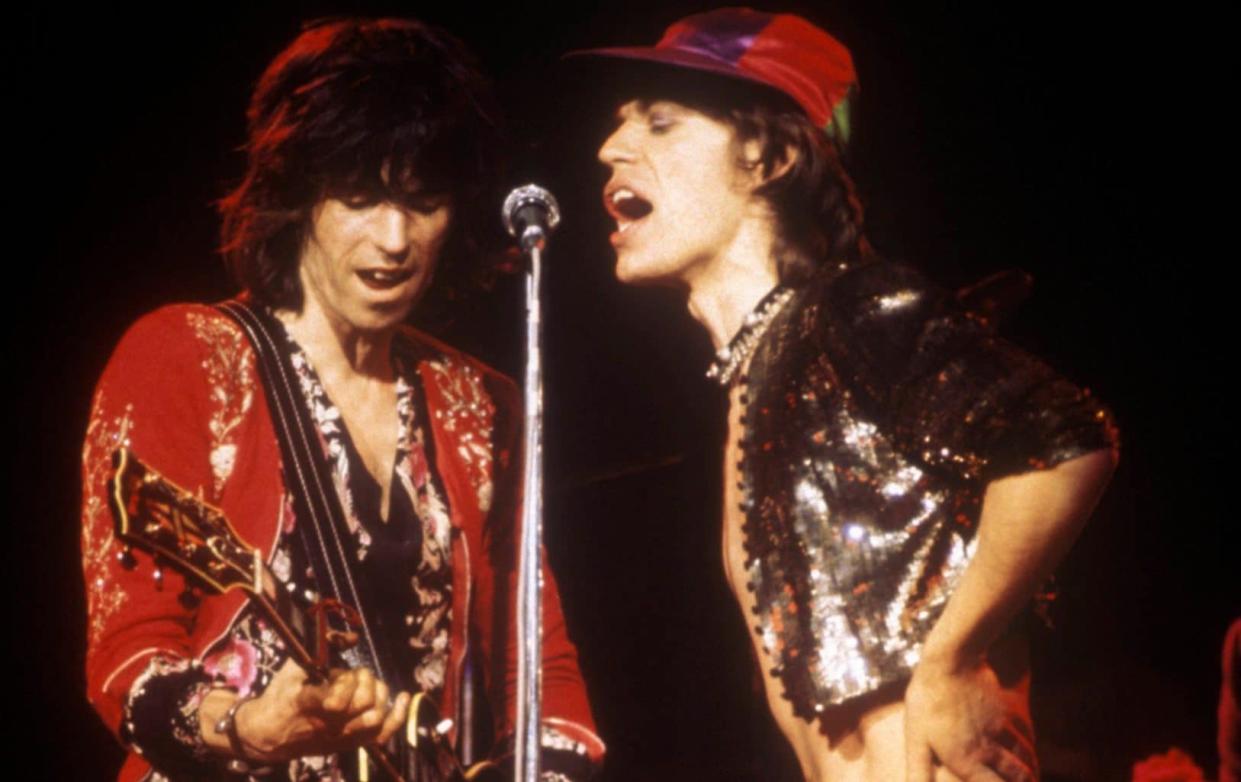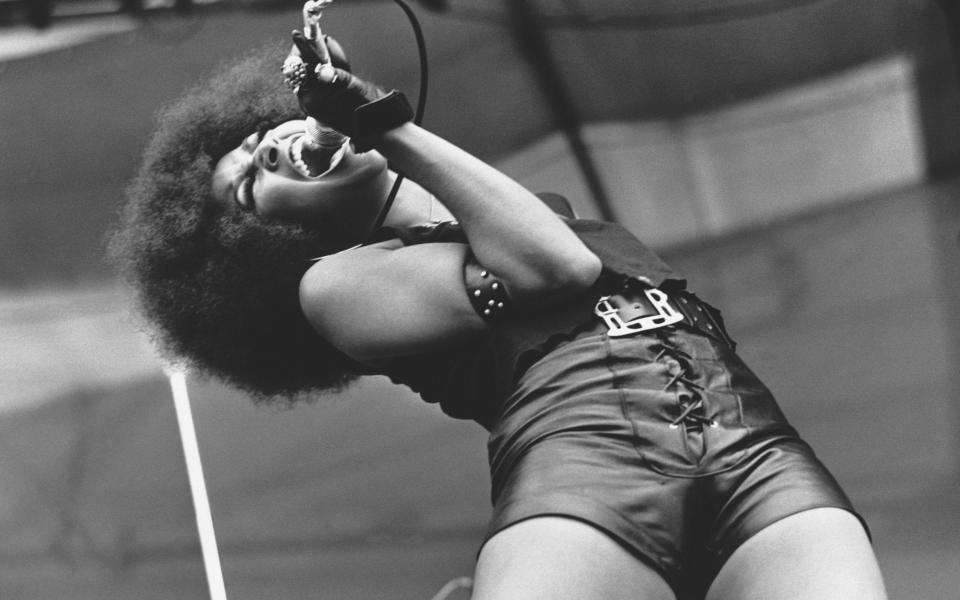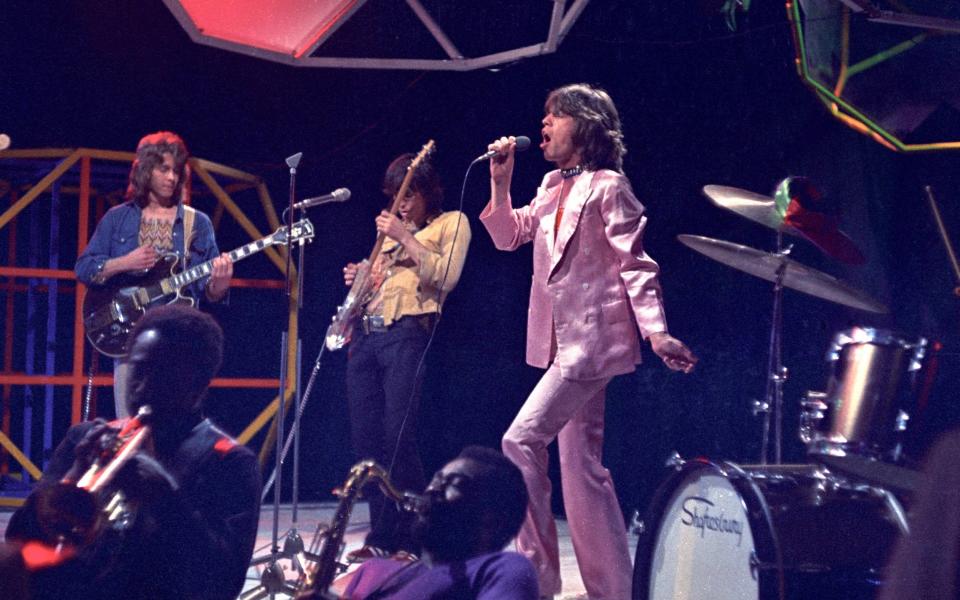Brown Sugar’s tortured history: why the Rolling Stones are cancelling their own song

The Rolling Stones have finally gone sour on Brown Sugar. The 1971 single is considered one of their essential hits and, of course, provides the visceral opening salvo to the album Sticky Fingers. And yet it was conspicuously absent from the setlist as the band resumed touring in the US recently.
Keith Richards later confirmed to the LA Times that Brown Sugar has, for the time being at least, received the red card. It had apparently been pointed out to Richards that the track was “problematic”. Judging by his LA Times interview, however, he remains baffled as to the precise nature of the problem.
“I don’t know. I’m trying to figure out with the sisters quite where the beef is. Didn’t they understand this was a song about the horrors of slavery?” he shrugged. “But they’re trying to bury it. At the moment I don’t want to get into conflicts with all of this s___.”
The Stones wouldn’t be the Stones without Richards and Mick Jagger having sharply diverging views. And so it was predictable that Jagger would have a different perspective on Brown Sugar’s absence. “We’ve played Brown Sugar every night since 1970, so sometimes you think, ‘We’ll take that one out for now and see how it goes’,” he said. “We might put it back in.”
These are strange times for rock’n roll’s ultimate warhorses. They are still reeling from the death in August of drummer Charlie Watts. And in a new interview with The New Yorker, Paul McCartney took a surprising pot-shot when labelling the Jagger-Richards juggernaut “a blues cover band”. And now they’ve dispensed with one of their seminal stonkers.
Of course, the real surprise may be that Brown Sugar lasted as long as it did. Even before the idea of “cultural appropriation” caught on, it was risky for the Stones to conjure with the demons of black slavery, as they do in the first verse. “Gold coast slave ship bound for cotton fields/Sold in the market down in New Orleans,” sings Jagger. “Scarred old slaver knows he’s doing alright/Hear him whip the women just around midnight.”
Nobody blinked at those lyrics in the early Seventies. Over the decades, however, Jagger has discreetly censored himself. Performing Brown Sugar in recent years, he has, for instance, swapped out the “hear him whip the women” line with “you shoulda heard him”.
Brown Sugar proceeds to pivot from the slave auction to the rock star boudoir. Having started with the tale of a woman forcibly transported from Africa’s Gold Coast to New Orleans, the second verse delves into Jagger’s fondness for black women.
“Drums beatin' cold, English blood runs hot,” he sings. “Lady of the house wonderin’ when it’s gonna stop.” And then, the chorus. “Brown Sugar, how come you taste so good?”
There was obviously a double meaning – a sexual one and also an allusion towards heroin. Jagger appeared to have chucked the second reference in just to be controversial rather than because he had anything to say about drugs.

“Drugs… That’s a double-entendre, just thrown in,” he said to Rolling Stone. “Brown sugar being heroin and… the whole mess [is] thrown in. God knows what I’m on about on that song. It’s such a mishmash. All the nasty subjects in one go.”
Speculation swirled for years as to which of Jagger’s conquests inspired Brown Sugar. Marsha Hunt, Jagger’s lover and the mother of his eldest daughter, Karis, long claimed the track was informed by their nine-month affair. The fling had started after Jagger saw her in the London production of hippy musical Hair.
Hunt, writing in her memoir, recalled Jagger arriving unannounced at her Bloomsbury apartment not long after. “Framed by the doorway as he stood grinning with a dark coat… He drew one hand out of his pocket and pointed it at me like a pistol… Bang.”
She also wrote that the baby they had together was planned. However, Jagger denied paternity, forcing Hunt to pursue him through the courts. He would not acknowledge he was Karis’s father until 1979.
In the meantime, another of Jagger’s paramours had come forward to claim they were the original Brown Sugar. Stones backing singer Claudia Lennear insisted she was the object of Jagger’s desires on the track (she apparently inspired David Bowie’s Lady Grinning Soul, too).
“Around the time Brown Sugar became a hit for The Rolling Stones, Mick Jagger and I were always seen together in restaurants and nightclubs in Los Angeles,” she told the Express. “That’s why people thought the song was about me, and Mick later confirmed that it was…The Stones had a bad-boy image but they were perfect gentlemen.”
And yet neither Hunt nor Lennear were especially prominent in Jagger’s thoughts when he composed Brown Sugar. He’d put together its bare bones, filming the movie Ned Kelly with director Tony Richardson in New South Wales in 1969.

“I wrote that song in Australia in the middle of a field,” Jagger revealed to Rolling Stone in 1995. “They were really odd circumstances. I was doing this movie, Ned Kelly, and my hand had got really damaged in this action sequence. So stupid. I was trying to rehabilitate my hand and had this new kind of electric guitar, and I was playing in the middle of the outback and wrote this tune.”
The lyrics would come much later. Yet Jagger knew from the start that Brown Sugar was special. “But why it works?” Jagger continued to Rolling Stone. “I mean, it’s a good groove and all that… The groove is slightly similar to Freddy Cannon, this rather obscure ’50s rock performer – ‘Tallahassee Lassie’ or something. Do you remember this? “She’s down in F-L-A”.”
Brown Sugar was completed in December 1969 as the Stones settled in at the iconic Muscle Shoals Sound Studio in Alabama to start on Sticky Fingers. In just a few days they recorded Brown Sugar, Wild Horses and Sister Morphine.

“It was already a fully developed song as far as the music went, but there were no lyrics,” producer and musician Jim Dickinson, who played piano on Wild Horses, said in an interview with guitar manufacturer Gibson. “Jagger sat down with one of those green steno pads and filled up three pages. It took him 45 minutes. Then he stood up and sang. It was unbelievable.”
Today, it’s the slavery imagery that stands out. And as the years have gone by so the criticisms have piled up. “Brown Sugar is gross, sexist, and stunningly offensive toward black women,” said Vulture in 2015 (the same article stated the track was originally titled Black P___y).
“The song is a disgraceful act of gratuitous juvenilia, relishing on the ability to offend rather than a considered analysis of the subject at hand,” added Far Out magazine this year.
Keith Richards would beg to differ, judging by his assertion to the LA Times that Brown Sugar was about “the horrors of slavery”. Jagger, though, seemed to eventually realise that the lyrics would be weaponised against the Stones.
“I never would write that song now,” he told Rolling Stone – and this was 26 years ago, when he was a mere lad of 52. “I would probably censor myself. I’d think, 'Oh God, I can’t. I’ve got to stop'. I can’t just write raw like that.”